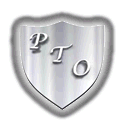|

ProTechs-Online |
Systems Administration |
|
Hardware Platforms |
I have troubleshooted literally thousands of Windows PC\Laptop systems and to a lesser extent the Apple's Mac's.
When it comes to servers most of my experience is with HP Prolient Servers, Dell PowerEdge servers and Whitebox (Custom built) servers.
For customers that can afford it I do not recommend designing a Whitebox server. This is because vendor software support, hardware support and warranty services will be harder to get, if at all, with a cheaper custom built system.
I would like to say one thing about hard disk arrays. SCSI is out dated, SATA is OK but problematic, SAS is great but I want FiberChannel. |
| |
Server Systems and Recommendations |
Windows: |
- Window NT 4 Server:
- Legacy system
- Should only be used for reference purposes with legacy software
- I recommend that the physical system be virtualized in a *hypervisor and the physical server decommissioned
- Exchange Server 5.5:
- Legacy system
- Mailboxes should be moved to Exchange 2000 or 2003
- Especially hard to move mailboxes on the Windows Servers SBS versions since domain trust relationships can't be established
- Server should be decommissioned
- Windows 2000 Server:
- Still a viable server system
- Microsoft support ending in 2010
- Terminal services client CALS licensing is free for Window XP and above operating systems
- I recommend that the physical system be virtualized in a *hypervisor and the physical server decommissioned
- Windows 2003 Server:
- R2 version is the best
- Excellent Server
- Has standard NTBACKUP utility
- Volume Shadow Copy (VSS) functionality
- DFS "Distributed File System" for branch office file share synchronization works great and highly efficient on network bandwidth usage
- Exchange Server 2003:
- Standard version database cannot exceed 18GB; if registry is modified maximum can be increase to 75GB
- Enterprise version must be used for large databases
- Outlook Web Access is a nice feature
- Volume Shadow Copy (VSS) compatibility
- Outlook Anywhere or "RPC over Https" is great to connect Outlook to your exchange server from outside of your local lan
- Windows Server 2008:
- Nice terminal server with RemoteApp capability
- Windows Server Backup scheme, you can only backup whole volumes but bare metal recovery is possible.
- Third party backup software recommended
- Exchange Server 2007 :
- Exchange 2007 must be installed on a Windows Server 2003 or 2008 64 bit system
- Outlook Web Access website has been greatly improved from 2003
- 2007 is harder to configure because of its dependence on the new Power Shell scripting language
- Exchange 2010:
- More usable features in the Exchange Management Console (not so dependent on Power Shell)
- Outlook Web App is nicer looking, more intuitive and feature rich than 2007
- Searching is faster especially with Windows 7 and Outlook 2010
- Outlook 2010 can Search by a single field or combinations of mail fields (ex: To, From, Subject, Body)
- DAG (Database Availability Groups) (Clustering)
- Exchange 2010 Standard and Exchange 2010 Enterprise servers can work together for Clustering
|
| |
* - Hypervisor - A software that is install on a hardware platform that then acts as the hardware layer for virtual machines. Virtual machines can be installed directly on the hypervisor from disk or from computer systems converted into a virtual machine. When a computer is converted into a virtual machine it then only exists as hard disk files. |
| |
Unix and linux: |
- Solaris:
- I was trained on Solaris but never actually got to work with it. Even after I received my Unix Networking certificate it took almost 6 months of my own exploration to really get a good grasp of the Unix style operation system
- Sun Microsystems main operating system
- Redhat:
- Redhat was excellent until it was no longer free. They still offered Fedora free which I really like as a client system but wouldn't use it for server purposes
- Earlier free versions of Redhat are still in use but unsupported for the most part
- Still the odd rollout takes place with older versions
- Enterprise versions look great and are pre installed on many off the self servers HP in particular
- Debian:
- Excellent open source server
- I use this server when money is short and an enterprise solution is required
- Embedded Linux:
- Cool stuff and open source
- GPIO for electrical control automation
- GNU programming capabilities
- Small footprint and industrial tough
- PC104 stackable modules
- I used this for a retail kiosk project
|
|
| |
